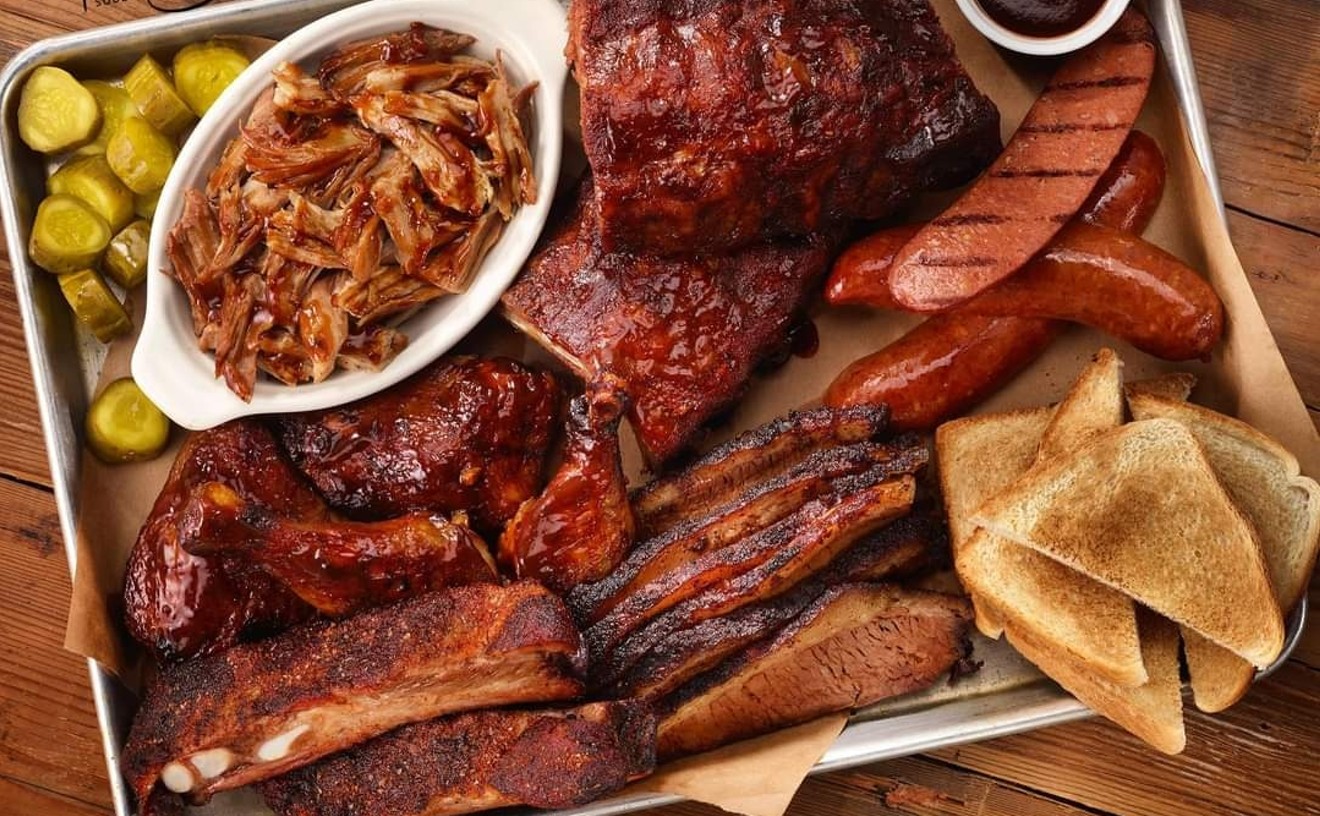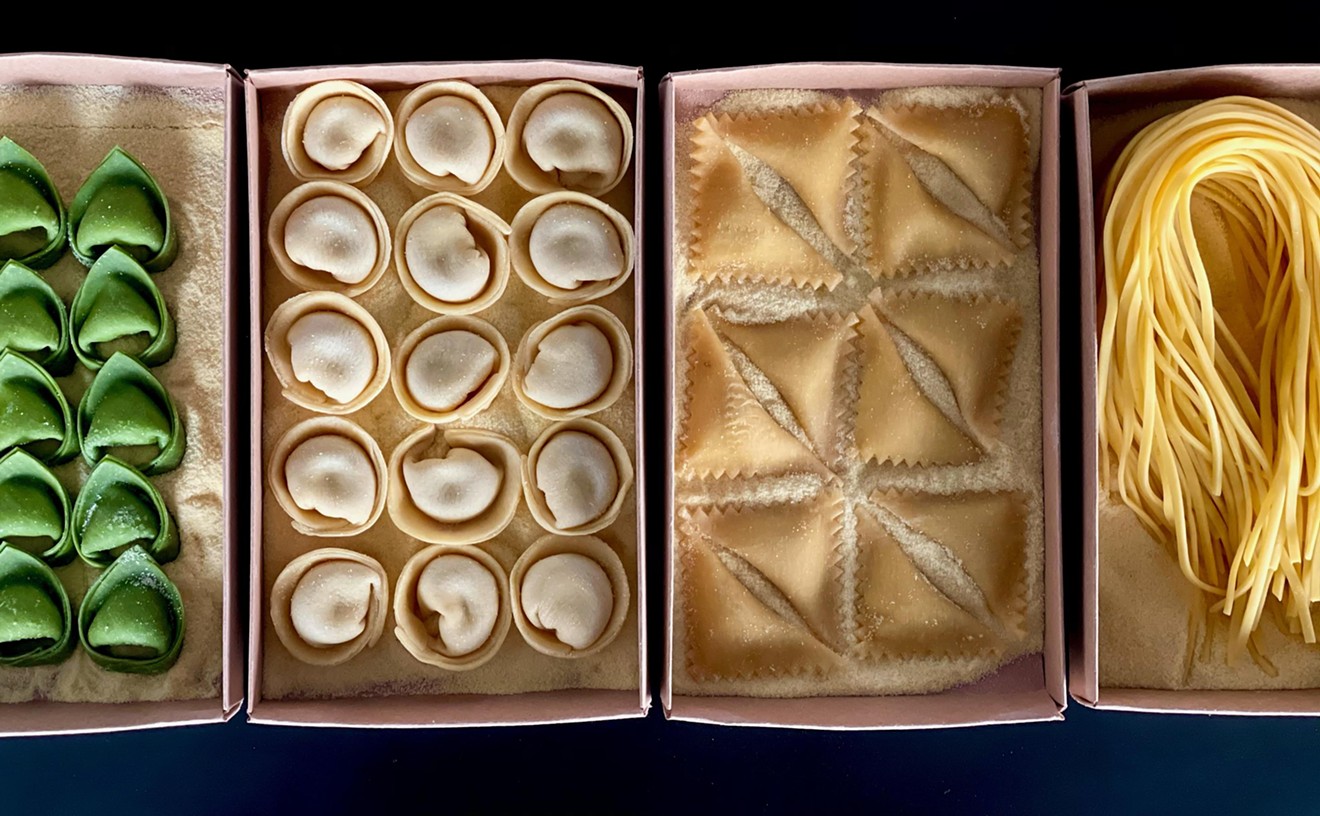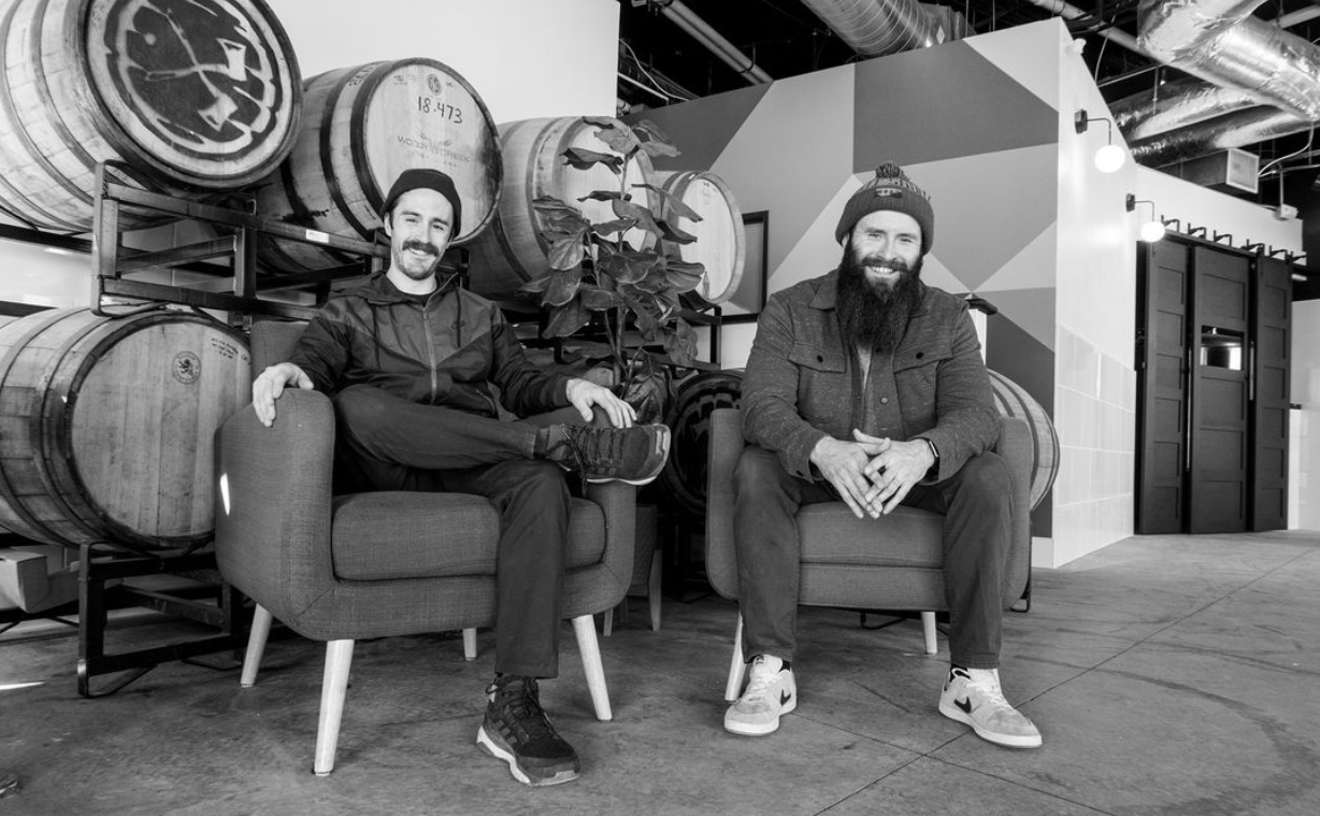See also: 3 Sons Brings Barbecue Back to Whittier
The book traces each component of a single soul-food meal to its origins, explaining the history and impact on African-American culture along the way. It also touches on the difference between soul and Southern foods (among them: Soul food includes the odd bits like chitlins and pig's feet), and talks about how a cuisine that originated in the Deep South followed the African-American migration into the cities of the North after the Civil War. Miller's next project is a book about African-American chefs in the White House and possibly a one-hour documentary on the same subject. For black and white cooks alike, barbecue is part of the Southern food heritage, and when I was having a tough time deciphering the smoke signals surrounding my recent Ethniche series on barbecue in Denver -- after tasty but confusing 'cue at Wayne's Smoke Shack, Piggin' Out and Brooks Smokehouse -- I decided I needed to consult an expert, someone who has critically evaluated more styles and recipes than I even knew existed. So I invited Miller to join me at my fourth stop: 3 Sons BBQ, a cross-regional smokehouse located in the same strip of storefronts that once housed the beloved and much-missed M&D's Cafe -- at one time one of the city's finest examples of homestyle barbecue and Southern cooking.Between bites of brisket and nibbles of collard greens, Miller -- who earned his judging certification from the Kansas City Barbecue Society in 2004 -- explains the judging criteria for a perfect smoked pork rib. When you bite into the center, he says, the meat should just barely cling to the bone, giving just a little resistance. The bone should turn white once it's been exposed beneath the meat; the pink smoke ring is a good visual indicator, too.
And how would he judge Denver's barbecue scene, which so many have labeled as second-rate? Miller is quick to list a few favorites: Boney's Smokehouse Pit Barbecue downtown, Brooks Smokehouse in Aurora, Country Time BBQ in a little shack off West Hampden Avenue, and -- no joke -- Whole Foods locations that feature their own in-house barbecues (the aroma of wood smoke is the giveaway). But he also points out how young most of this town's barbecue restaurants are, and how many try to tackle too many styles and sauces instead of focusing on doing one thing well.
Denver is home to plenty of transplants from Texas, Tennessee, Kansas City and regions of the Deep South -- all places with distinct barbecue styles, all of which have their supporters as well as their detractors. I ask Miller if one of the reasons for the town's bad-barbecue rap might be these non-natives giving up too soon when they can't find an authentic taste of home, and he agrees: Folks who grew up eat-ing a certain style of barbecue move to Denver and sometimes get lost in the city's hodgepodge of sauces, techniques, sides and -- maybe most important -- varieties of wood.
And even with all the versions of barbecue available here, the country's barbecue scene features several regional styles not generally known or served in Colorado. With the weak representation of vinegar-spiked Carolina-style pulled pork (Breckenridge Brewery's is the best version, Miller says) and the complete absence of both Alabama white-sauce barbecue and Santa Maria-style tri-tip from California, there's still room for growth. Miller's even trying to figure out how to resurrect the lost Colorado art of lamb barbecue -- ribs, for sure, but he'd also like to see other parts of the animal used -- so that there's at least representation in cooking competitions, if not in restaurants.
Keep reading for a Q & A with barbecue expert Adrian Miller...
After we devour everything on our plates, we chew over a few of the issues Miller has brought up.
Westword: Was there a period in Denver history when lamb barbecue was common? Adrian Miller: Lamb was a feature at Colorado barbecues as early as the 1880s. Local BBQ restaurants stopped specifically listing lamb in their ads by the 1940s. It could have remained an item that they sold, but it wasn't something they showcased.
You mentioned that you'd like to see Denver barbecue restaurants specialize a little more. Can you expand on that a little? My main quibble with many of Denver's barbecue joints is that they often present an eclectic barbecue menu that picks and chooses items from different regions in the country. Yet they don't bring the culinary tradition along with them, such as using a particular type of wood, a certain sauce paired with a set of traditional sides. I think most places barbecue all of their meats the same way and then give the customers bottles of different regional sauces in order to customize it. That's too big a shortcut, and if you've grubbed in these other re-gions, you know what we're being offered in Denver is not a fair representation of the real deal. Instead of trying to be all things to all people, I think barbecue joints should make only a few things, do it well. In fact, I'm becoming a bigger fan of places that make a certain quantity of food and close up when they sell out. I think that brings more quality control.
Denver seems to be lacking in pit masters with decades of experience, or families that have been smoking for multiple generations. Are there any exceptions, or at least good places that have been around for a couple of decades? I would have said the Shead family of Mack and Daisy Shead, who founded M&D's Cafe, which opened in the 1970s and operated until the end of 2011. Some of their kids were running a barbecue joint in Aurora, but that recently closed. Daddy Bruce Randolph was a well-known barbecue man in Denver who died in the 1980s, and his son ran a place in Boulder, but that also closed a few years ago. I really can't think of a mom-and-pop, multi-generational barbecue joint in the Denver area. We may see that in the next decade or so if the cur-rent crop of 'cue entrepreneurs get their kids interested in the family business.
What are some of your Denver favorites that are now closed? My short list of the dearly departed are Big Papa's, M&D's, We're Smoking and Blest Bar-B-Que of the Rockies.
Do you have any favorites when it comes to non-traditional barbecue? I love, LOVE cedar-planked salmon.
Cornbread, white bread, rolls or other? I'm not a stickler on the bread, but I think purists should go with sliced white bread. Cornbread is more of a Southern/soul-food thing.
If you could do a last meal of all the best BBQ from around the country, what would it be? Since it's my last meal, it would be pretty much all meat, with a bite-sized portion of all of the following: smoked sausage and pimento-cheese appetizer from Jim 'N Nick's (various locations); alligator "wings" from Brooks Smokehouse, Denver; barbecue bologna, Jim Neely's Interstate Barbecue, Memphis; barbecue Cornish hen, Cozy Corner, Memphis; barbecue spaghetti, The Bar-B-Q Shop, Memphis; beef brisket from Kreuz Market, Lockhart, Texas; burnt ends from Arthur Bryant's, Kansas City, Missouri; chopped pork from Lex-ington No. 1, Lexington, North Carolina; hot link sausage from LC's, Kansas City; pork spareribs from Oklahoma Joe's, Kansas City; pulled pork from Payne's, Memphis; smoked chicken from Stubb's, Austin.
I would wash all of this down with a Big Red Soda from Texas.
Follow @CafeWestword











